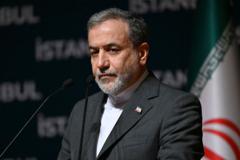The article explores the diplomatic maneuvers and military posturing from India in the wake of the attack, highlighting the risks of a conflict between the nuclear-armed neighbors.
**India on High Alert: Military Action Against Pakistan on the Horizon?**

**India on High Alert: Military Action Against Pakistan on the Horizon?**
Amid rising tensions following a terrorist attack in Kashmir, India appears to be preparing for a potential military response against Pakistan.
India seems to be building its case for military action against Pakistan following a devastating terrorist attack in Kashmir. Prime Minister Narendra Modi has been actively communicating with world leaders over the past week, yet these talks appear less focused on seeking international support for de-escalation and more on justifying possible military responses. India accuses Pakistan of having links to the attack, which resulted in 26 civilian deaths by gunmen, although no specific group has been confirmed as responsible.
Indian officials have briefed diplomats on Pakistan's historical support for terrorist organizations targeting India, providing a narrative that lays the groundwork for potential military action. They've mentioned ongoing investigations, hinting at technical intelligence connecting the attack's perpetrators to Pakistan, including traces of facial recognition data. However, analysts observe that the evidence presented so far does not constitute a definitive case, leading to speculation that India is either gathering more data or feeling little need to validate its potential military actions on the world stage.
The specter of military confrontation looms heavily, especially given that both India and Pakistan are nuclear-armed nations. The risk of escalation from any conflict is substantial, yet international pressure appears minimal, providing India with a sense of strategic freedom it didn’t enjoy historically. With its growing diplomatic and economic clout, India is becoming increasingly assertive, raising concerns about the stability of the region amidst heightened tensions and the potential for a military engagement that could have dire global ramifications.
Indian officials have briefed diplomats on Pakistan's historical support for terrorist organizations targeting India, providing a narrative that lays the groundwork for potential military action. They've mentioned ongoing investigations, hinting at technical intelligence connecting the attack's perpetrators to Pakistan, including traces of facial recognition data. However, analysts observe that the evidence presented so far does not constitute a definitive case, leading to speculation that India is either gathering more data or feeling little need to validate its potential military actions on the world stage.
The specter of military confrontation looms heavily, especially given that both India and Pakistan are nuclear-armed nations. The risk of escalation from any conflict is substantial, yet international pressure appears minimal, providing India with a sense of strategic freedom it didn’t enjoy historically. With its growing diplomatic and economic clout, India is becoming increasingly assertive, raising concerns about the stability of the region amidst heightened tensions and the potential for a military engagement that could have dire global ramifications.






















